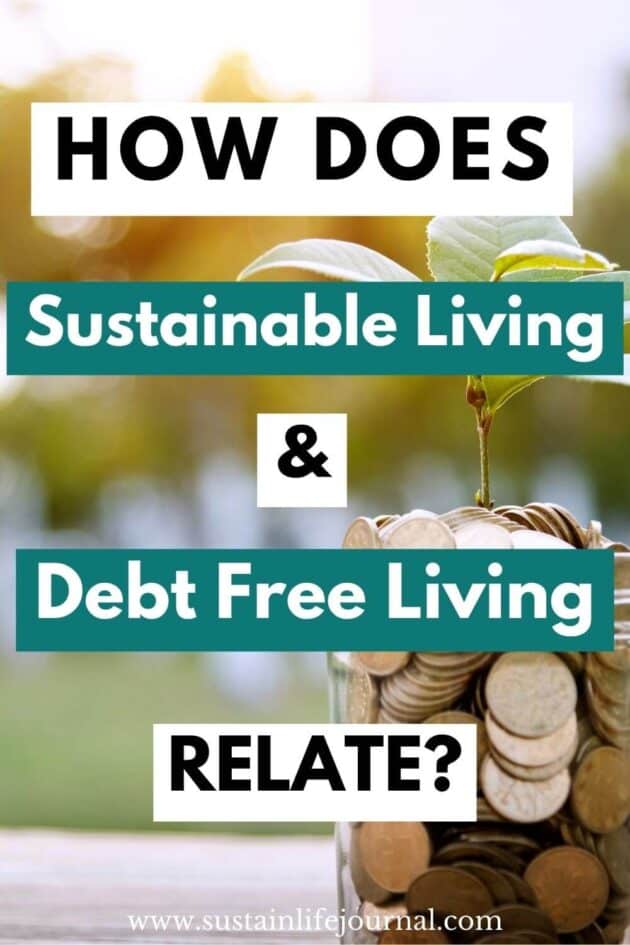5 Simple Connections Between Sustainable Living On Your Debt Free Journey
Have you noticed the overlap between sustainable living and your debt-free journey?
When making strides to live more minimally and kinder to the earth you can also save a good amount of money as well!
This post will detail all the mindset shifts you will need to make to be more conscious of your budget and lifestyle choices in order to be more eco-conscious.
*I am not a professional financial advisor. This is not financial advice.
This post is all about sustainable living on your debt free journey.
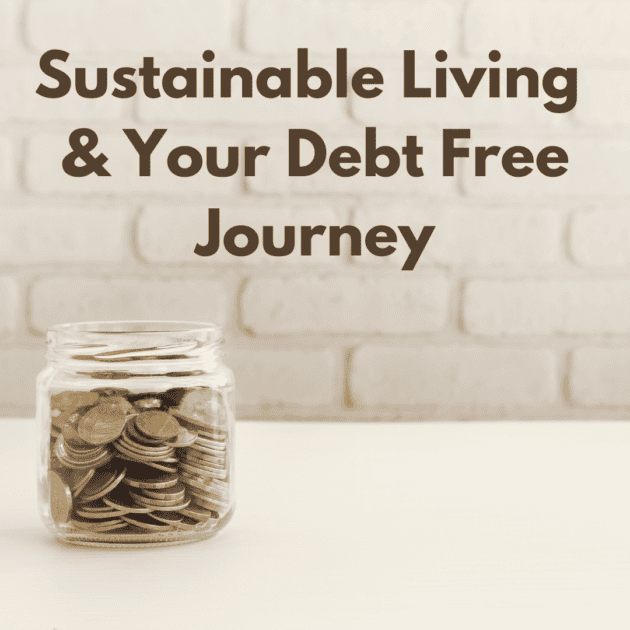
The best tips for sustainable living on your debt free journey
1. Live below your means and only buy what you need
One of the main components of the debt-free journey is living below your means. What does this mean exactly?
Many times this means sitting down and making the dreaded budget to really see what money is coming in and what is going out. Once you have that figured out you will know exactly how much you can spend.
There are many reasons we end up spending more than we have but most of the time it comes down to comparison.
Unfortunately, this comparison game comes at the cost of wrecking our personal finances and the health of the earth.
We have all seen videos of sea animals wrapped up in plastic or landfills getting so big they look like literal mountains. The level of overconsumption that we are at not only holds us back financially and from living a fulfilling life but it also ends up harming other beings that share the earth with us.
Be mindful of only buying what you need and remember that the excess has to go somewhere!
2. Buy in bulk when possible to save money
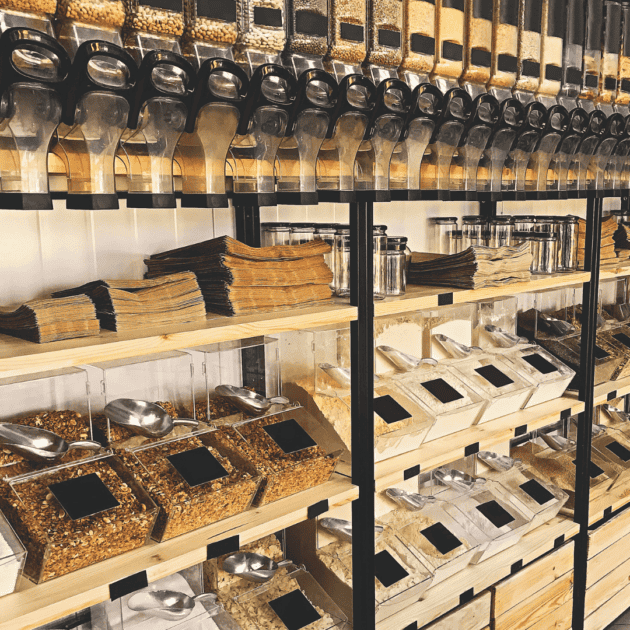
What is the first thing you think of when you hear zero waste living? Possibly, buying in bulk.
Buying groceries and personal care items in bulk is a great way to reduce the amount of plastic you use and can also save you money!
Think of things like buying dried beans in bulk versus buying individual cans of beans. It is less convenient to buy dried beans but it is much more budget-friendly.
Other items like castile soap can be bought in bulk and can be diluted and used for many different cleaning purposes around your home!
Of course, buying in bulk comes with a higher upfront cost so I did want to note that as well.
In the long run, though, you can save money while also skipping all the packaging that comes with purchasing individual items.
{RECOMMENDED POST: How to Shop At a Zero Waste Store}
3. Check in with what your priorities are and spend accordingly
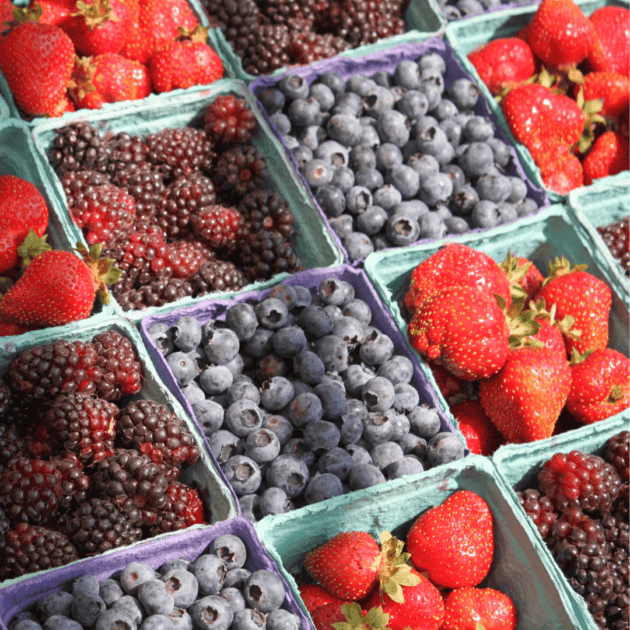
Have you heard the phrase that “money is energy” or that we “vote with our dollar”?
Both of these quotes hint at how our money-spending habits reflect what we value and what we support.
For example, if you spend your money supporting local farmers for your weekly produce and pay for a gym membership then you most likely value your health and that of your communities. Your energy goes to creating a healthier world just by voting with your cash!
This perspective can be helpful when budgeting because it is pretty much guaranteed that you will have to make sacrifices on your debt-free journey.
It is easier to make sacrifices when you can see the big picture and know that for example, by skipping frequent mall trips you can pay for healthy organic food that supports the health of the environment and your own health.
4. Use things until they break and repurpose when possible
While you are working hard to cut costs and work extra, take note of all of the things you already have that still have a lot of life left in them.
Using what we have until it truly cannot be used anymore keeps any overconsumption we participated in from going straight to the landfill. Many people have the tendency to over-buy clothing.
Instead of treating your closet like it has a revolving door each week, consider reimagining how clothing can be creatively used in new outfits, layered or when it is worn out, used for outdoor work.
{RECOMMENDED POST: How to Extend the Life of Your Clothes? Care For Your Clothes With These 9 Simple Tips}
5. Learn how to say no thanks so you can prioritize what you value
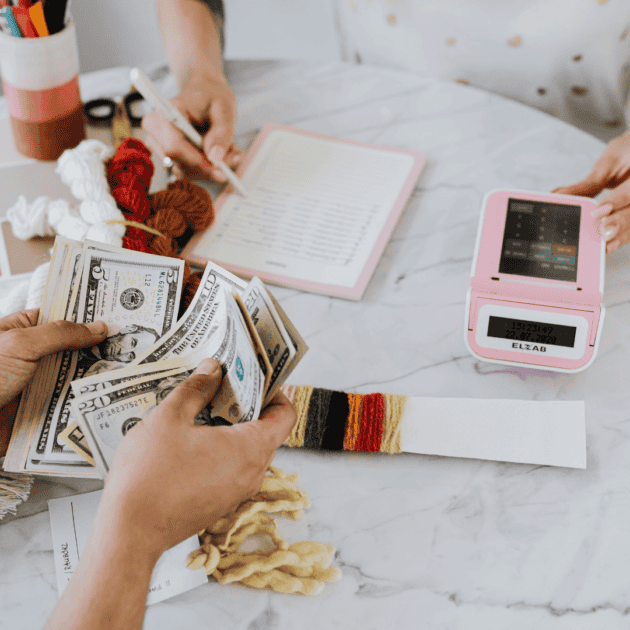
Saying no can do wonders for your budget and for the health of the environment. Friends invite you to go shopping at the mall for things you don’t need? No thanks. The brand new tech gadget comes out but your current tech is working perfectly fine? No thanks.
Being able to completely say no to certain things (that you don’t care about or truly need) from coming into your life is just another way you can respect the money you worked hard for and not add to the strain on the environment by using resources we really don’t need to be using.
Are there any other connections between sustainable living and debt free living that you would add to this list? Please let us know in the comments below and it can help others as they try to navigate their personal finances and sustainable living as well.
Stay well,
Maggie
This post was all about sustainable living on your debt free journey.
Other posts you may like:
7 Shockingly Simple Non Aesthetic Eco friendly Tips To Be Kind To The Planet and Your Wallet
8 Eco friendly Moving Tips To Save Money and the Planet
5 Important Things I Don’t Buy Any More Thanks to the Zero Waste Lifestyle (Saves Money Too!)
If you would like to save this frugal living post for later-pin it
